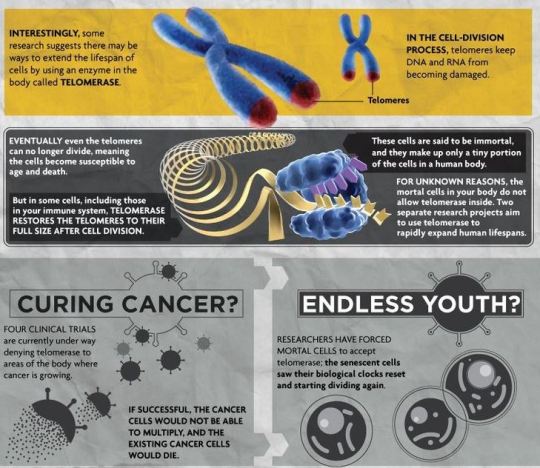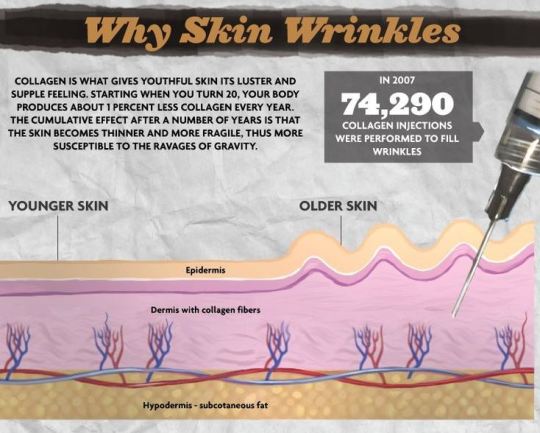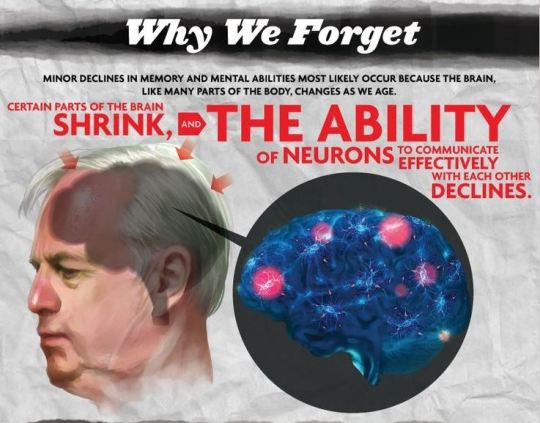Link
How do vaccines cause autism? See exactly what the science says!
This is a humorous post commenting on peoples’ loss of faith in science.
48 notes
·
View notes
Link
Its interesting how even such a well known government institution such as the CDC could be thrown into doubt. It is important to remember all the things that can cause an organization to lose credibility.
In recent classes we have been discussing the role of credibility and trust in science and scientists, as well as societies view on science as a whole. The article I chose discusses these exact issues with one of the largest, most well known governmental science Centers, the Center for Disease...
1 note
·
View note
Link
This post gives an interesting view on trust in science. Sometimes no amount of evidence can overcome the prejudice and prior beliefs that people hold.
Evolution is one of the most confirmed and rejected theories in the public’s eye. When Darwin published his theory, he was worried about being rejected by the scientific community because it went against the very grain of the creation theory. Darwin’s theory is now the basis for many scientific...
1 note
·
View note
Link
This post points seems to recognize that there were some possibly positive effects of the disastrous Challenger explosion. Any future expeditions run by NASA are likely to be more careful and better planned. Science builds upon itself and without failure, there would be less successes.
With risk comes reward. Well, that is what many stock market books say, but can that be applied to science as well. Innovation is the goal of many scientists, whether by money, success, awards, or a spot in the history books. The risk of disaster is always on the minds of scientists as they try...
1 note
·
View note
Photo
This cartoon seems to represent a satire on the comparison between the creationist and evolutionist arguments. The cartoon attempts to show that religious people are stubborn and refuse to accept the clear truths that science presents them with. On the other hand, this cartoon seems to show how science sometimes attempts to subvert religion despite the equality that society claims it wants.

The Simpsons
175 notes
·
View notes
Link
This article discusses the credibility of scientists. It brings into question the validity of scientific discoveries such as the classification of Pluto as a planet. Was the mis-classification of Pluto really a scientific oversight? or was it simply a choice that was overruled? Some scientific decisions may not have such simple reasons.
http://www.nytimes.com/2015/01/20/science/nasa-spacecraft-get-a-closer-look-at-pluto-and-ceres-whatever-they-may-be.html?_r=0
In class recently we learned about the roles of credibilityand trust, and how they play a role in the history of science including the example of cold fusion....
2 notes
·
View notes
Link
This post sums up the changes that most people in the current generation had to go through as technology developed. The changing communication and entertainment options were especially noticeable.
Science plays a crucial role in our society, whether it is through the genetically modified organisms we eat at our dinner tables, to the IPhones connected to every teenager’s hip, or medical advancements used for organ transplants. Science plays an active role in my life because it’s constantly...
2 notes
·
View notes
Link
This post summarizes the story of HeLa cells. It was an important scientific study that was very controversial. It is clearly important to remember social issues when working in science.
Henrietta Lacks was a black tobacco farmer from Roanoke, Virginia who died of an aggressive form of cervical cancer in 1951. Unbeknownst to her, doctors removed cell tissue from her body during treatment then cultured and shared them with fellow researchers after her death. These cells were the basis of the immortal ‘HeLa’ line, which was used by Jonas Salk to develop the polio vaccine, NASA to observe human cell behavior in zero gravity, and in the creation of many of the drugs and medicines taken for granted today. HeLa remains a foundation for other landmark scientific discoveries, not excluding breakthroughs in cancer, AIDS, and genetics research. For decades, however, Lacks and her family received no credit, a tragedy that was partially remedied in 2013, when an agreement was reached between Lacks’ descendants and the National Institutes of Health regarding consent and controlled access to HeLa. On January 30, 2015, members of the Lacks family were honored guests at the White House for the unveiling of President Obama’s new ‘Precision Medicine’ initiative. According to WhiteHouse.gov: “[The] Precision Medicine Initiative will pioneer a new model of patient-powered research that promises to accelerate biomedical discoveries […] to select which treatments will work best for which patients” with an emphasis on rigorous privacy protections. Since the Administration has already recognized the contributions and sacrifices of Henrietta and her family, a designated day of recognition for her would be a logical next step towards not only promoting this initiative, but bestowing long overdue acknowledgement upon the matriarch of modern biomedical research. Please add your name in support of a National Day of Recognition for Henrietta Lacks. Sources: http://www.smithsonianmag.com/ smart-news/the-end-of-the- henrietta-lacks-saga-25204450/ http://www.smithsonianmag.com/ science-nature/henrietta- lacks-immortal-cells-6421299/? no-ist http://rebeccaskloot.com/the- immortal-life/ http://www.whitehouse.gov/the- press-office/2015/01/30/fact- sheet-president-obama-s- precision-medicine-initiative
Hi, I hope you don’t mind sharing this petition. Your blog has a sizable following and we could really use a boost. In short, Henrietta Lacks died of cervical cancer in 1951. Doctors removed cell tissue from her body during treatment then cultured and shared them with fellow researchers after her death. Prized for their ‘immortal’ quality, ‘HeLa’ (Henrietta Lacks) is still used today in biomedical research. To date, Lacks’ descendants have not received compensation for the manifold scientific breakthroughs made possible with the use of HeLa. Please consider supporting this worthy cause. Thank you!
179 notes
·
View notes
Quote
Most scientific claims made on the frontier will ultimately be disproved, due primarily to bad or incomplete data, and occasionally to blunder. But the scientific method, which allows for expeditions down intellectual dead ends, also promotes ideas, models, and predictive theories that can be spectacularly correct. No other enterprise in the history of human thought has been as successful at decoding the ways and means of the universe.
Neil deGrasse Tyson (via whats-out-there)
This quote shows the nature of the “Golem” discussed in the course. The golem means well but can easily make mistakes. Many of the scientific studies discussed by collins and pinch are summed up in this short post.
48 notes
·
View notes
Photo
This is an interesting discovery and fits well with the scientific discovery module. It would be interesting to know if there is any controversy about who owns the discovery...

Australian scientists make breakthrough in treatment for Alzheimer’s disease and dementia with a non-invasive ultrasound technology
Researchers at the University of Queensland’s Brain Institute hope to trial a planned “cheap, mobile’’ ultrasound device for humans in two years after the technique was found to work on mice.
The drug-free treatment uses ultrasound waves to break apart the neurotoxic amyloid plaques that cause memory loss and cognitive decline.
It is hoped the breakthrough will help in the treatment of sufferers — particularly those diagonised early in the progress of the disease — and open up new avenues in research in both Alzheimer’s and dementia.
Read more
Webofgoodnews.com
134 notes
·
View notes
Link
This blog compares some of our readings and describes how technology shapes us. I like the way that Alex talked about the bus building and the way that it was limited.
From the two readings, both authorsdiscuss how technology is not only viewed for its practical use but how innovations have political properties. These perspectives from both authors helped me understand that technology really is influenced by behavior and other social norms. In my blog I discuss...
1 note
·
View note
Video
Comment 20
Seeing videos like this all over Facebook really remind me of tacit knowledge. The fact that this woman has lived 29 years without hearing means that many people have unsuccessfully tried to help her understand what its like to hear. But now with technological innovations, she was able to experience it and it must have been a completely different feeling to what others have told her.
youtube
This video reminds me a lot of tacit knowledge. Everybody i am sure tried to explain to her what hearing was like since she was little but she never actually knew what it was like. No one could explain it. There was no list of instructions. She knew nothing until experiencing it for the first time.
4 notes
·
View notes
Photo
Comment 19
Not really understanding how aging works before this diagram, it was really interesting to see how the body changes with age. I always wondered what exactly makes the body transform and this graph explained it in a simple manner.







The Science of Aging
(Source)
5K notes
·
View notes
Link
Comment 18
For Neil deGrasse Tyson to discuss this makes me think back to Gasland, specifically to the EPA part. When the EPA member discusses how the EPA won't look into environmental impacts that fracturing is causing. Probably because of all the money that fracking brings in. If this kind of decision-making continues then who knows what other decisions will be made while disregarding the consequences they bring.
Starting this Monday, 4/20, Neil deGrasse Tyson will be appearing weekly in what may be the first late-night science talk show.
This is combining the concepts of science and society, and leading to new scientific discovery by our youth and people that didn’t even realize they liked science in the first place. I am very excited to see the success of this show. though, I do think it is a little sad that we must combine science with comedy and pop culture to get people interested in science.
2 notes
·
View notes
Photo
Comment 17
Yet another technological innovation that helps those living a life without any complications. For a paralyzed man to be able to walk a marathon is something that would have been ridiculed as impossible decades ago. Hopefully this technology will be better accessible in the future considering it costs more than 160,000 per suit.



A paralyzed man in a bionic suit will walk a marathon
The Irish Examiner reports that Nathan Kirwan, a 26-year-old from Cork, Ireland, will attempt to complete 55,000 steps in the suit, fittingly dubbed “Lazarus.” The walk will be take place over five months. Kirwan hopes to raise approximately $167,000 to buy the suit — but it won’t be just for him.
465 notes
·
View notes
Link
Comment 16
Although this aircraft is only just a vision for the future, for it to have already conceptualized a plan in which there would be zero-carbon emission is revolutionary. Its amazing to see potential future innovations that we might experience one day. Not only will this innovation change the way we preserve fuel but also help clean our environment with less emissions.
The technological advances of the past decade and a half have truly been amazing, and it is without a doubt that they will continue to grow in their extravagance. This plane is just another example of ingenuity, the blending of present and future, and addressing global issues in a eco-friendly manner. Hopefully this, or at least more vehicles like it, will become a reality and not just concept.
1 note
·
View note
Photo
Comment 15
Interesting article to read and ponder what life would be like living in the sea or building floating cities in the ocean. While global warming and other climate problems have pressed concerns for environment, I don't see these innovations coming to life anytime soon or in the near future.



10 innovative ideas that let us live on water As the ocean makes inroads over the next century, people living in low-lying areas will be displaced, leaving them in need of new homes.
284 notes
·
View notes